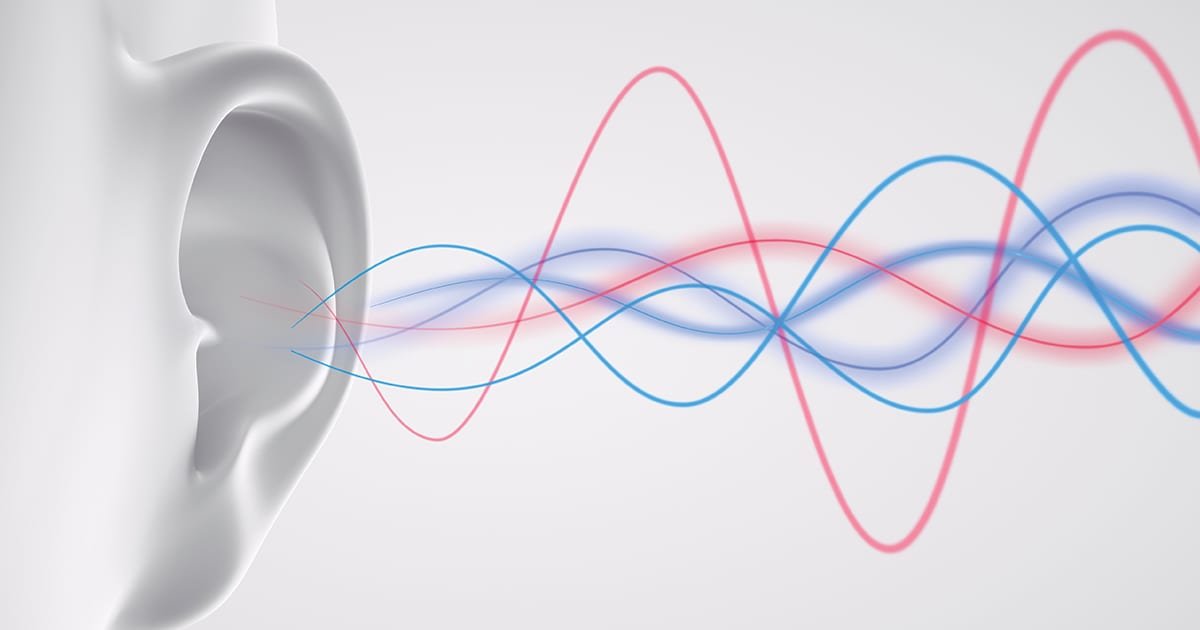 When you think of great partnerships, what comes to mind? Abbott and Costello? Sonny and Cher? Batman and Robin? How about your brain and hearing? While their functions are distinctly different, your hearing health depends on how well your brain and ears work together. Your brain relies on both of your ears to collect sound, comparing the incoming data to decide what to focus on. The comparison helps the brain decide which information is important in understanding speech and focuses on that source while ignoring the background noise.
When you think of great partnerships, what comes to mind? Abbott and Costello? Sonny and Cher? Batman and Robin? How about your brain and hearing? While their functions are distinctly different, your hearing health depends on how well your brain and ears work together. Your brain relies on both of your ears to collect sound, comparing the incoming data to decide what to focus on. The comparison helps the brain decide which information is important in understanding speech and focuses on that source while ignoring the background noise.
Your brain and ears also work together to fight debilitating medical issues. Because we hear with our brains, untreated hearing loss can lead to cognitive difficulties and increase the risk for developing dementia and Alzheimer’s. When the brain “forgets” what it’s like to hear, it is difficult to regain those pathways. Not hearing well can lead to social isolation, loss of income or earning potential, depression, anxiety, and anger. Untreated hearing loss may also be an underlying symptom for a larger health problem, such as cardiovascular disease or diabetes.
Scientists have been studying the relationship between hearing and the brain for decades. Their findings are used by hearing instrument manufacturers to improve hearing solutions.
Thankfully, the majority of age-related hearing loss can be treated with a hearing aid. While hearing aids do not restore normal hearing, hearing aid users report greater satisfaction with their daily routines.
To keep your brain healthy, medical professionals recommend getting good sleep, regular physical exercise, and engaging in mind-challenging activities, such as crossword puzzles. To keep your hearing healthy, the Doctors of Audiology at LA Hearing Center in Lewiston, Maine recommends having a baseline hearing test by age 50 — or sooner if you experience hearing difficulties — and to address any hearing loss diagnosis immediately.
Your brain and hearing are a dynamic duo that work together not only to help you hear, but to maintain your overall health. Contact an audiologist at LA Hearing Center at 207-786-3305 to help you keep your ears and brain working in tandem.
Source: Healthy Hearing
What Does Hearing Loss Sound Like
Visit one of our trusted partners, Phonak, to listen to a hearing loss simulator that compares three levels of hearing (normal, mild loss and severe loss) as you listen to several common sounds (sounds of nature, the city, a phone ringing, speech, music).

When is it time to seek professional help?
As soon as you feel you are experiencing difficulty hearing and/or understanding conversations, especially if you have begun AVOIDING situations and activities that you enjoy because of your hearing difficulties.
Choosing Your Healthcare Team
We are the Lewiston Auburn area’s only private, non-profit provider of comprehensive audiological services.
